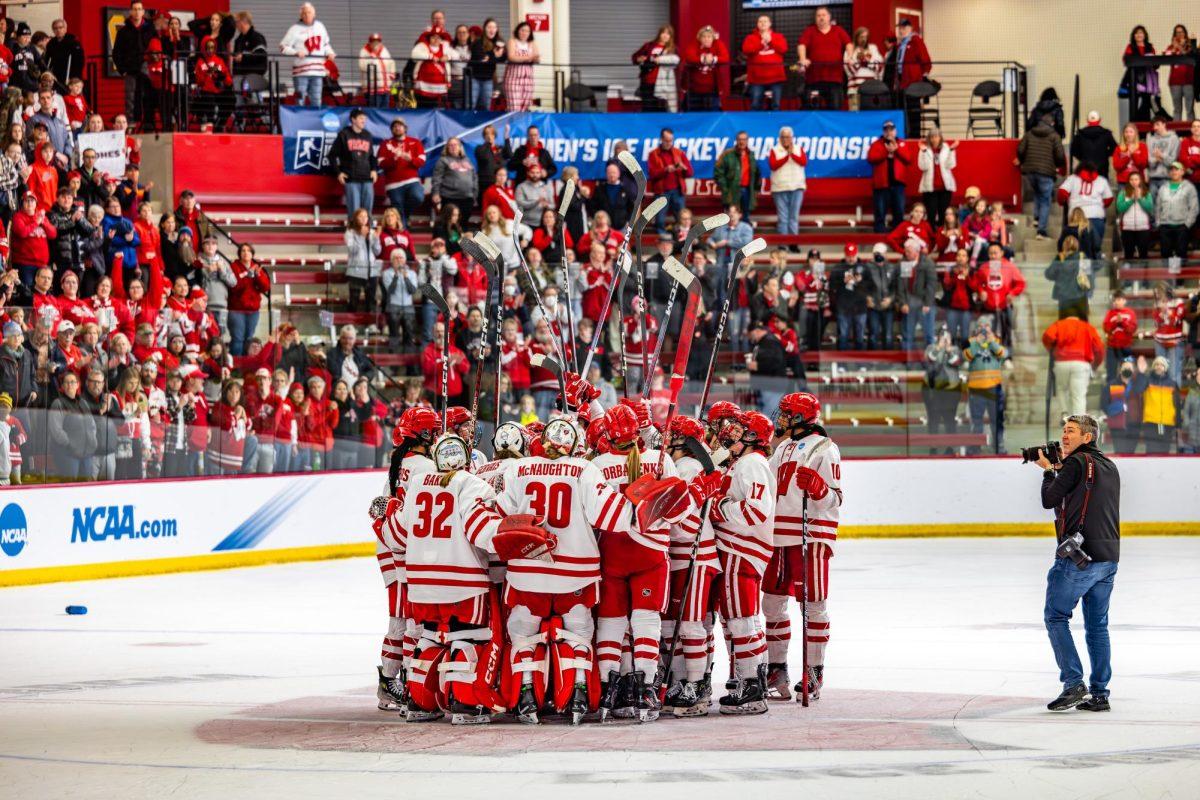In celebrating March as Women’s History Month, it’s crucial to recognize the contributions and challenges faced by LGBTQ+ female athletes at institutions like the University of Wisconsin. As a renowned institution with a rich history in athletics, UW has been home to numerous LGBTQ+ female athletes who have not only excelled in their sports but also broken barriers and paved the way for future generations. It is important to shed light on the experiences of LGBTQ+ women in athletics and recognize their contributions to the ongoing narrative of female achievements in sports history.
In the realm of sports, where dedication, talent and perseverance intersect, there exists a group of individuals who face unique challenges beyond the field, court or track. LGBTQ+ female athletes, like Tessa Towers, a member of the UW women’s basketball team, navigate the complex terrain of both sports and identity with resilience and determination.
“Sports have given me the ability to push through hard times,” Towers said. “When things aren’t going my way. I’m able to just keep working hard so that I can get better at the sport that I’m doing…and helped me learn how to work hard.”
Towers’ journey into basketball began in eighth grade, a testament to her love for the game and her unwavering commitment to improvement. Despite not starting on the varsity team until her sophomore year in high school, Towers faced challenges head-on, using setbacks as fuel to propel her forward. Now a sophomore in college, she embodies the spirit of resilience and hard work.
But Towers’ experience isn’t without its unique obstacles. As a queer woman in sports, she confronts a double bind, encountering sexism within the LGBTQ+ community and homophobia within the sporting world. Yet Towers refuses to let these challenges define her. Instead, she finds strength in advocating for herself and embracing her authentic self in all aspects of life. Her journey underscores the importance of visibility and representation in sports, normalizing LGBTQ+ identities and inspiring younger generations to embrace their true selves.
“Allowing myself to be myself and space to express all of my different personalities… has definitely helped me a lot,” Towers said.
Despite the progress made in recent years, LGBTQ+ female athletes at UW still face unique challenges and barriers. Discrimination, harassment and stereotypes continue to exist within the world of sports, making it difficult for LGBTQ+ athletes to fully embrace their identities and reach their full potential. Additionally, the lack of representation and visibility of LGBTQ+ female athletes in mainstream media further perpetuates these challenges, often leaving their stories untold and their achievements unrecognized.
Even with the strides made in creating inclusive environments within athletic institutions, discrimination and bias persist. Towers shared her experiences of facing discrimination not only for her sexual orientation but also for her presentation. Dressing in a more masculine manner has subjected her to scrutiny and derogatory comments, highlighting the need for continued efforts to foster inclusivity and acceptance in sports.
Visibility matters, not just for individual athletes like Towers but for the broader LGBTQ+ community. By seeing queer female athletes succeed on the court, field or track, others find solace in knowing they aren’t alone. Moreover, it expands the definition of success in sports, challenging stereotypes and breaking down barriers.
“I believe the visibility of queer female athletes helps to normalize LGBTQ+ identities in sports,” Towers said. “It also serves to inspire younger generations and demonstrate to the community that they are not alone.”
Institutions play a vital role in shaping the environment for LGBTQ+ athletes. Implementing anti-discrimination policies and organizing events like pride games are steps in the right direction. However, true inclusivity requires more than just policies — it necessitates a cultural shift. LGBTQ+ athletes must feel empowered to speak out and advocate for themselves, contributing to a more welcoming and understanding atmosphere for all.
UW fosters a supportive environment for LGBTQ+ inclusion in sports at the institutional level. The university has implemented policies and initiatives aimed at fostering diversity and creating a welcoming environment for all athletes, regardless of sexual orientation or gender identity. These efforts include LGBTQ+ awareness training for coaches and staff, the establishment of LGBTQ+ support groups within athletic departments, and the promotion of LGBTQ+ visibility through events and initiatives.
As we honor Women’s History Month, Towers reflects on her role in the ongoing narrative of female achievements in sports. Breaking stereotypes and challenging norms, she paves the way for future generations of LGBTQ+ athletes. Her advice to aspiring athletes echoes her own journey — don’t let fear hold you back, embrace your authentic self and find your community of allies and supporters.
Through their talent, resilience and activism, these athletes have not only shattered stereotypes and broken barriers but also inspired future generations of LGBTQ+ athletes to embrace their identities and pursue their passions. As we celebrate Women’s History Month, let us honor the achievements and courage of LGBTQ+ female athletes at UW and continue working towards a more inclusive and equitable future for all athletes, regardless of sexual orientation or gender identity.



